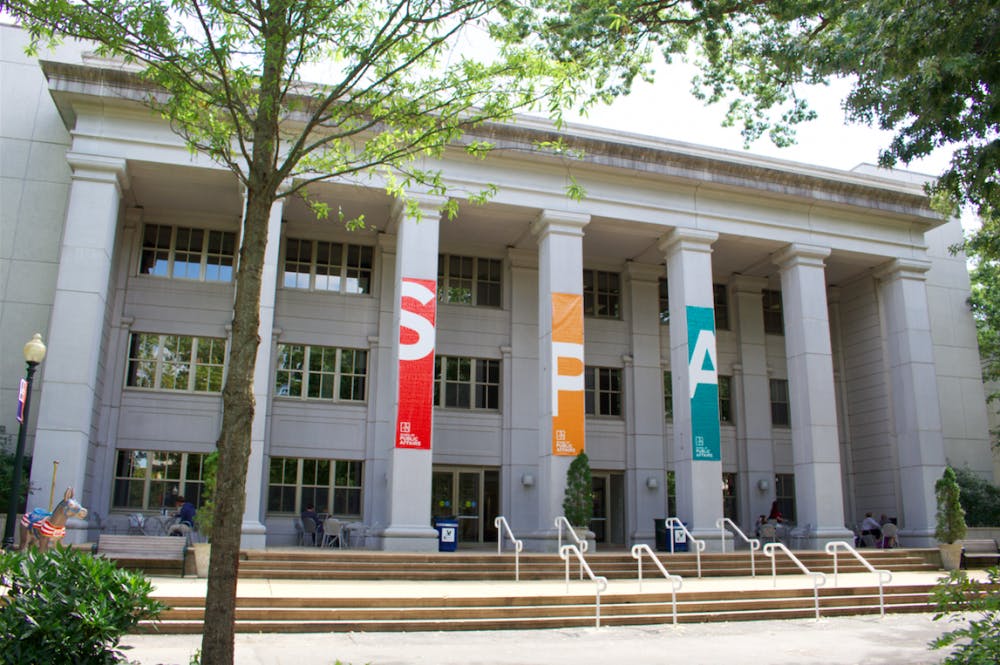Last spring, School of Public Affairs professor Lara Schwartz and several students saw a need for a space that is focused on understanding civil discourse and its role on AU’s campus. They launched the project this fall after a successful pilot.
For Schwartz, civil discourse is “a truthful and productive conversation between individuals, a discourse that doesn’t tell people who they are but is rather a listening-focused discussion.”
“My role in this is to create opportunities for students and AU community members to ask themselves these tough questions and engage with questions about what it means to be a useful and productive member of a community, member of a discourse and to offer different opportunities and modes for people to think and talk about this,” Schwartz said.
The program has several components, including peer leaders who will facilitate conversations between students, the “Real Talk” blog, resources for staff and faculty on navigating dialogue with students, events focused on civil discourse and a tool called “Building My Voice.” The tool is a pamphlet that focused on identifying goals, values and challenges as speakers, listeners and learners.
SPA senior Daniel Ritter acts as the program coordinator and is responsible for planning events, training peer facilitators and managing the blog.
“We’re trying to do everything all at once, from hiring the peer facilitators to getting the name out there and organizing events,” Ritter said. “It’s been interesting seeing how the community has already gotten involved and behind the program, whether it’s students, administration, faculty or organizations like The Eagle.”
When it comes to peer facilitators, training is focused on the mechanics of holding a conversation and learning how to approach tough subjects. Peer facilitators are taught “how to handle a room, how to get people engaged, how to ask tough questions, questions that aren’t just on the surface or stereotypes, but to get to the roots of why and how they feel about things,” Ritter said.
The Project on Civil Discourse put on three events this semester, with plans for more this spring. Their first event was on Sept. 27 and featured speaker Josh Blackman, who discussed the role of free speech and dialogue on college campuses.
Their second event was on Oct. 17, where students heard from Garrett Epps about the power of speech and dialogue in society. Their final event was on Nov. 1, which focused on the intersection of activism and identity from Amanda Werner (who recently changed their name to Ian Madrigal), an activist who is famous for dressing as the Monopoly Man to protest Congressional hearings for Wells Fargo and Equifax.
In many ways, the cultural and political climate of America was behind the creation of the project, as several other universities create similar programs to educate students on the ins-and-outs of civil discourse.
“Investment in this idea [at AU] has been fantastic,” Schwartz said. “The extent to which the people in this community have shown that they’re excited to talk about civil discourse meets my expectation. I’m really hopeful.”
Ritter said everyone involved in the project is focused on executing their goals and helping the program to grow in the future.
“We have so many things in the pipeline that I just want to see come out in the first year,” Ritter said. “The program coordinators and peer facilitators down the road will have plenty of time to shape this in ways that really adapt to the current culture and current events.”
The program is also looking to include future events into various programs such as Welcome Week. In the spring, they will recruit more peer leaders, hold more events on discourse and offer more opportunities for students, staff and faculty to contribute to the “Real Talk” blog.
“I think my role is just creating a successful first year in executing events, training our peer facilitators, and then releasing them to their discussions and knocking out all the things that are needed to get this done,” Ritter said.





